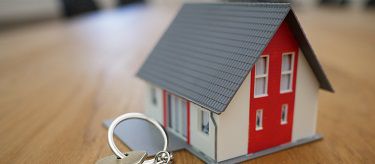Homebuying checklist: 7 factors that affect home value
It's easy to fall in love with a house at first sight. Here's how to create a homebuying checklist that'll keep you grounded at your next open house.
When you've decided to buy your first home, it's easy to let your enthusiasm take over. Eventually, though, the financial reality will set in — and when it does, you want to be confident you made the right decision.
Every open house or viewing is an opportunity to evaluate a property, both as your potential home and as an investment. Before heading out, make sure you've thought about what's important to you and your family. Even better, set it all down in a homebuying checklist.
While everyone's checklist will look a little different, here are five things to look out for before you make an offer.
Structural integrity
For most of us, a home will be the largest purchase we make. No one wants to find out their investment needs major structural work. The structural integrity or construction of a property is one of the central factors that affect home value: if it isn't acceptable, it can result in a lower appraised value and hurt your ability to get mortgage financing and homeowners insurance. However, it also might allow you to make a low ball offer.
If financing does get approved for a property with structural issues, you could find yourself facing a major construction repair bill before you and your family even take possession of the home. Protect yourself by including a home inspection clause in your offer to purchase.
Number of bedrooms and baths
Larger homes have traditionally been considered a better value, even though they cost more. Typically, homebuyers have been generally advised to buy a three-bedroom home over a two-bedroom if they could afford it, as it would be more in demand when it came time to sell.
According to the latest research from the National Association of Home Builders, though, house trends show that homebuyers are increasingly looking for smaller homes (south of the border, anyway). With that in mind, compare the number of bedrooms and baths as you look at each home and consider whether you're still willing to pay more for them.
Location
Location is as important as — if not more important than — the home itself. A house in a desirable neighbourhood can be worth thousands more than the very same model in a less desirable neighbourhood. Location impacts the comparable property prices and recently sold figures agents use to set a listing price for a property, as well as the amount purchasers are willing to offer. If you're flexible on location, you might find the house of your dreams at an affordable price. But keep in mind that, unless the neighbourhood changes drastically, future purchasers will also look for a deal on the property.
What exactly does "desirable" mean when it comes to location, though?
Distance to amenities
Homebuyers will pay for convenience, and that means being close to amenities. As you evaluate a home's value, pay special attention to the nearby schools, shops, hospitals and clinics, office centres, and public transportation hubs.
School districts
As most parents with school-aged children will tell you, a good school is another key consideration in the decision to buy a home. Parents want the best for their children, so it makes sense that homes in purportedly good school districts are more highly valued than homes in less desirable districts.
Size and features of the lot
It's no surprise that land value and property value are tied together, so pay close attention to the size and features of the lot. Generally, smaller lots in the same location cost less than larger lots do. Desirable features such as large trees, ravines, and privacy created by natural topography add to a lot's value. That said, rights-of-way and utility easements could detract from it.
Property taxes, condo fees, and homeowner associations
Have your homebuying checklist remind you to look into the additional costs that go along with a home. According to the Appraisal Institute of Canada, most homebuyers consider property taxes when putting an offer on a home. After all, higher taxes mean less money for other things like mortgage payments. The same goes for condo fees and homeowners association fees. It's important to note these expenses, since your lender will use them as part of your mortgage application.
Buying your first home is exciting, and it's easy to let your emotions run free when you find one you love. Still, it's also important to think practically and look at the property's features with a critical eye. Keep these points in mind to help you find the right home at the right value for your family.


